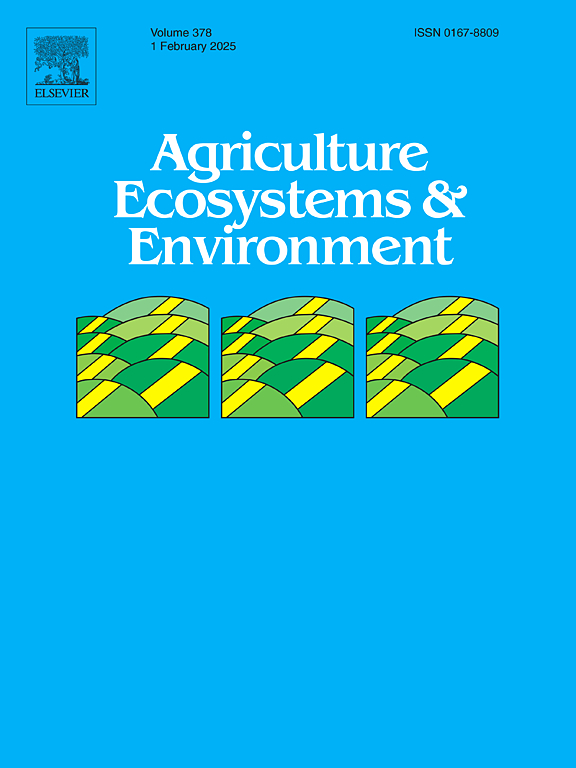Plant and microbial communities follow fast-to-slow strategies in response to grazing in an arid rangeland
IF 6
1区 农林科学
Q1 AGRICULTURE, MULTIDISCIPLINARY
引用次数: 0
Abstract
Biotic and abiotic resources in arid area have been threatened by the disturbance of human activities. It remains unclear what life strategies plant and microorganisms use to cope with livestock grazing, and how these strategies are associated with soil metabolic compounds. Based on a 22-year grazing experiment in an arid rangeland on the Loess Plateau, we investigated changes in the resource strategies of plant and soil bacterial communities in response to grazing pressure by examining plant morphological traits and bacterial ribosomal RNA gene operon (rrn) copy number, as well as changes in their associated soil metabolites. With increasing grazing pressure, both plant and soil bacterial communities followed a fast-to-slow resource acquisition strategy. Plant traits related to fast-growing strategy were replaced by traits related to slow-growing strategy, shifting from higher specific leaf area, specific root length, and plant height to higher root and leaf tissue density. Bacterial rrn copy number also decreased with increased grazing intensity, indicating that the soil bacterial community tends to change from r-strategy to K-strategy. A small portion (7/144) of soil metabolites played a significant role in the plant fast-slow gradient, and their abundances decreased with increasing grazing pressure. These metabolites were positively correlated with plant slow-growing strategy and bacterial rrn copy number, but negatively correlated with plant fast-growing strategy. Our work indicates a unified fast-to-slow strategy that above- and below-ground organisms apply to cope with grazing intensification, highlighting that plant fast-growing strategy may rely on soil metabolic activities. This contributes to the monitoring and sustainable management of intensively grazed arid rangelands.
求助全文
约1分钟内获得全文
求助全文
来源期刊

Agriculture, Ecosystems & Environment
环境科学-环境科学
CiteScore
11.70
自引率
9.10%
发文量
392
审稿时长
26 days
期刊介绍:
Agriculture, Ecosystems and Environment publishes scientific articles dealing with the interface between agroecosystems and the natural environment, specifically how agriculture influences the environment and how changes in that environment impact agroecosystems. Preference is given to papers from experimental and observational research at the field, system or landscape level, from studies that enhance our understanding of processes using data-based biophysical modelling, and papers that bridge scientific disciplines and integrate knowledge. All papers should be placed in an international or wide comparative context.
 求助内容:
求助内容: 应助结果提醒方式:
应助结果提醒方式:


